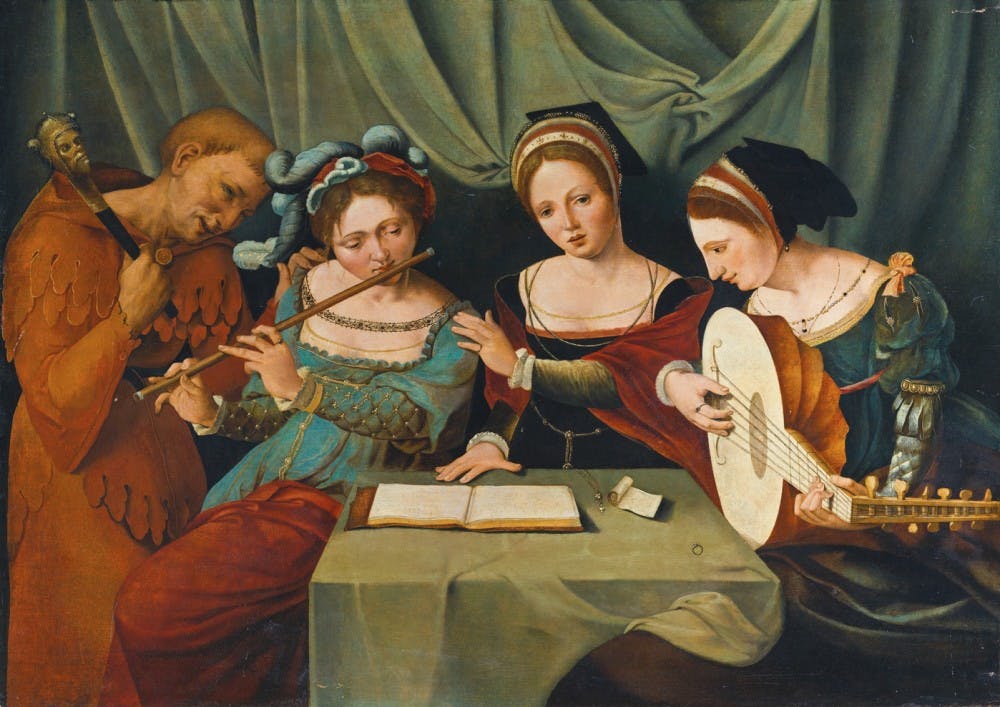In an era when the boys’ club of the music industry is melting away into a more open, equal opportunity space, and women are blossoming onto the scene like never before, there is a lot of progress to be grateful for.
While it's not perfect, call-out culture is an important indication that men who abuse and manipulate women will no longer be allowed to do so discreetly. After rumors of sexual misconduct, bands from indie-emo standard Pinegrove and even queer punk outfit PWR BTTM saw tours canceled, public apologies issued, and endured well-deserved public embarrassment and disgrace.
The #MeToo movement and "cancel culture," its less refined but undeniably related counterpart, are certainly indications that the music industry is making space for women. Magazine headlines and online top 50 lists confirm it — tons of Spotify playlists with titles like “Women of Indie” and “Top New Girl Pop” boast an impressive repertoire of female-led projects, and pretty much every major music magazine or website has fallen prey to the trend of “Top Female Artists in X Genre” or “Female Fronted Bands You May Not Have Heard Of.” Wherever people are talking about music, people are talking about the women who create it.
This is a great thing, and a huge reversal of the historical blueprint for who can be famous and how. But I caution listeners, readers, and fans not to take this trend at face value. Let’s examine something fundamental to the conversations we have around the music we care about — the words we use.
Of course, it is a brilliantly wonderful thing that more fans of music are being exposed to more female-identified musicians, and that women have more of a chance to flourish on their own terms in the music community. But are our headlines doing more harm than good? Why are we prone to classifying female artists in rap, indie, and pop as belonging to “female” subgenres? And why can’t we just see female artists as people?
By using “female-fronted” as a modifier for a band with a female lead singer when the discussion is otherwise not about gender or womanhood, but about the music itself, we are actively other-ing female musicians. Of course, there are times when it is appropriate to bring a singer’s gender into a conversation; many women make music that is feminist, or blatantly regards gender; it can be helpful, for example, when examining gender discrimination in the music industry. The list goes on.
These special cases aside, pointing out a singer’s gender when that gender is female, or any other historically marginalized gender, is not helpful. Instead, it takes away the universality naturally, automatically granted to male artists, and immediately identifies a woman’s music as Feminine, driving home a connotation that she is in some way taking on themes of Womanhood, simply by existing as a girl.
Referring to bands with women in them as “girl pop” or referring to a favorite “female vocalist” exposes the speaker’s bias. Since we don’t use language like this for men, why do we do it for women? It only serves to show that we are taught to think of male as the default and female as a special exception. When was the last time you heard someone ask if you knew of any good “male-led” projects? I’ll hazard a guess and say never. We don’t need a modifier to identify an artist as male, because masculinity is our default mode, even in a world where most of us listen to and love just as many female musicians as male ones.
We’ve internalized a worldview that others women in every way, and the music industry is no different. What’s more, we’ve internalized the idea that simply pointing out someone’s gender counts as a form of activism, making it easy for bloggers and journalists to exploit our political sensibilities for views by lazily tossing gender into conversations that should focus on a woman’s art.
This year, let’s intentionally disrupt the internalized biases in our language. Let’s stop identifying the “best female artists” and start including the women who deserve it in our top ten lists right alongside their male counterparts. Let’s stop building subgenres entirely around gender, and just see female musicians for what they are — musicians.

